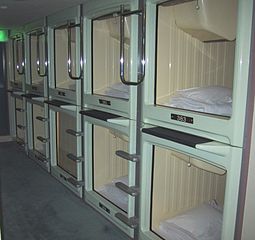There are things which keep us from achieving our goals, and sometimes we’re not aware when we’re being our own worst enemy.
1) be a good friend
Be a good friend to everyone but yourself. Always check email regularly, answer the phone and respond to your social media pings – as important as these are, they’re all distractions from writing. Set a time for them and that should be when you’re in your least creative head space, you can’t write another word or you need a break. There are days when I don’t check in with anyone or even look at emails because they’re an easy distraction and shift my thoughts on other directions. There are no short phone calls with close family or friends. The danger of the distraction is the changing head space. When I’m writing a world, I need to stay in it – the travel fatigue between realities is strenuous and counterproductive.
2) pretend you’re back in elementary or high school
At some point, we learned not to believe in ourselves. We can be our own worst enemy and critic. Somewhere deep inside a kernel of doubt niggles, of not being good enough (whatever that means), that we won’t succeed, that the stories will never measure up. Remember those elementary and high school teachers who red inked your assignments? In an effort to teach us the basics, they unwittingly hammered fragile creative egos. Make them the ghosts of your past, not your present. So, drop the hammer and the red ink and use the keyboard instead.
3) sweat the details
The devil is truly in the details. It’ll bring your world alive or it’ll totally swamp you. Researching a world thoroughly is fun and it stimulates creativity. Done to excess, however, it can be a distraction from both writing the story and the protagonist’s journey. The details must contribute to the plot and not be superfluous. Sometimes you don’t know what details you need until the story is being written. Use the premise and a rough outline to guide your research. If you really like research and world building, know that it isn’t over until the story is published – there will be times when you need to deepen the world with a little more research.
4) fear heights
Fear climbing the ladder of success. Fear writing ‘the end’. Fear sending your work to beta readers and editors. Two things happen when we get closer to our goal – the dreaming stops and we are forced to leave our now comfortable, creative world for the business one. The business side demands skill sets we’re not always comfortable with such as revision, editing, submission and marketing. Rejection or criticism, at any level, feels like falling off the ladder for the higher we go, the harder the fall. But it doesn’t have to be. Learning the business side, climbing that ladder – it’s a skill set that once embraced creates possibilities and enthusiasm for new goals, new stories and opportunities to realize your highest goal which is that of professional writer.
5) believe it’s a just hobby
If you don’t take it seriously, neither can anyone else and the support you need (time to write, encouragement, feedback) won’t be there. Worse still, you’ve created an environment designed to sabotage your goals. Most of us need to work to pay the bills so we can’t write full time. But treating it like a profession isn’t justy about having endless time – it’s about taking it seriously, setting regular times to write, learning the craft and business. So set your goals and take them seriously. Most importantly, decide what it is you want from your writing – is it a hobby or do you want something more? Then, set your goals accordingly.
6) read 15 how-to books and conscientiously apply them to your first draft
That stopped me cold. I didn’t need to read 15 books, just one how-to at the wrong time gave me a very painful writer’s block that took a week to work through. Of course we need to know craft and basic story structure and a few things which will make revision less painful. But sometimes we must trust we know that intuitively and let the story be told. Whether you outline or not the story must be written with all its flaws and gems all mashed into the manuscript. Revision, not the first draft, is the perfect time to analyze the manuscript and apply all the how-to advice. The danger, however, is that there are books 16, 17, 18 and more, and that the goal of finishing the novel isn’t realized. Revision, like this blog, must come to an end and the best way to do that is to write …
The End




